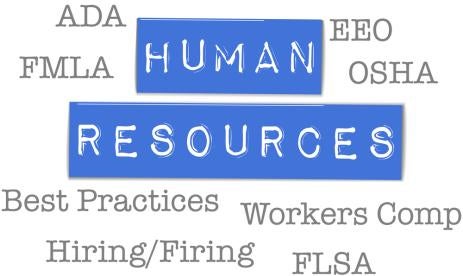Since news of the Harvey Weinstein scandal broke on October 5, 2017, Hollywood and the entertainment industry have been the focus of media attention about the prevalence of workplace harassment in the industry and how to deal with it. But financial services firms should be aware that sexual harassment is not an issue that is limited to Hollywood. As U.S. Equal Employment Opportunity Commission (“EEOC”) Acting Chair Victoria Lipnic recently said in an interview with Law360, “We see this everywhere. This happens to women in workplaces all over the place.”
Financial firms also have been forced to confront allegations of sexual harassment publicly. For example, Social Finance Inc. (“SoFi”), an online lending firm, has been sued by a former employee alleging that CEO Mike Cagney “fosters a sexually charged corporate culture that condones unlawful conduct.” While Mr. Cagney did the right thing in response by issuing a memorandum to SoFi employees announcing that an internal investigation would occur and promising “severe action” if the lawsuit’s allegations proved true, Mr. Cagney later resigned as questions over his own behavior mounted.
Over the last two months, Fidelity Investments has dismissed two portfolio managers—one manager was terminated following allegations that he made inappropriate sexual comments at work and another manager was fired after allegations surfaced that he sexually harassed a female junior employee. In response, Fidelity’s CEO, Abby Johnson, in a video speech delivered to the firm’s 40,000 employees, stated, “We have no tolerance at our company for any type of harassment. We simply will not, and do not, tolerate this type of behavior, from anyone.” Ms. Johnson echoed those remarks in a speech given to the Securities Industry and Financial Markets Association (known as “SIFMA”) the following day. She has responded to these matters in textbook fashion after they became public, first by taking prompt remedial action against the offenders and then by making it clear that sexual harassment will not be tolerated by the upper echelons of management.
It is clear by the recent outpouring of support for victims of sexual harassment and the creation of the #MeToo movement that this is an issue that cannot be ignored by companies and should be proactively addressed. Unfortunately, a recent study by theBoardlist and Qualtrics says that 77 percent of corporate boards “had not discussed accusations of sexually inappropriate behavior and/or sexism in the workplace.” Less than 20 percent of the 400+ people surveyed had reevaluated their company’s risks regarding sexual harassment or sexist behavior, even in light of the recent revelations in the media. (The survey was conducted over the summer, before the Weinstein allegations came to light).
Consequences for Failing to Adequately Respond to Harassment Allegations
There are significant consequences for failing to implement a plan for preventing sexual harassment in the workplace, and for failing to adequately respond once a complaint of sexual harassment has been filed. While sexual harassment claims may originate as internal complaints, they may result in a charge of discrimination filed with the EEOC or the corresponding state or local agency. Since fiscal year 2010, roughly 30 percent of the approximately 90,000 charges of discrimination received by the EEOC each year have alleged sex-based discrimination, and, during that same time period, the number of charges alleging sex-based harassment has gradually increased from just below 13 percent to just above 14 percent.
Sexual harassment claims may also lead to litigation, which can be expensive and time-consuming. In the Harvey Weinstein matter, for instance, Mr. Weinstein’s former company, The Weinstein Co., has been named in a $5 million civil suit alleging that executives of the company did nothing to protect women who did business with Mr. Weinstein, despite being aware of his inappropriate behavior. Additionally, the New York attorney general’s office is investigating The Weinstein Co. for potential civil rights violations in relation to its handling of claims of sexual harassment.
Aside from litigation, financial firms may face increased scrutiny from regulators. SoFi, for example, would like to expand its offerings to credit cards and checking accounts. But the allegations of sexual harassment, among other things, could negatively impact the opinions of the regulators that will decide whether SoFi is entitled to the state bank charter and federal deposit insurance needed to increase its offerings.
What Employers Should Do Now
The recent publicity regarding sexual harassment claims does not mean that financial service firms need to fear a return to the “boys club” atmosphere of the 1980s and 1990s. Financial services firms should take the following tangible actions to combat sexual harassment in the workplace:
-
Create and publicize a robust complaint procedure. Sexual harassment at work often goes unreported. According to the EEOC, as many as three-quarters of harassment victims do not file workplace complaints against their alleged harassers. Make sure that you have robust reporting mechanisms in place to receive complaints and consider allowing employees to complain directly to human resources, to a supervisor, or to an anonymous hotline.
-
Promptly investigate complaints. Once a complaint is made, promptly and thoroughly investigate the complaint, making sure that your employees do not retaliate against the alleged victim or any person who cooperates in the investigation.
-
Conduct an independent investigation. A hallmark of a competent investigator is someone who acts and appears impartial. In certain cases, that may mean hiring an outside consultant or legal counsel—someone unaffiliated with you—to conduct the investigation.
-
Communicate with complainants. A common objection asserted by complainants is that they are not informed about the status of the investigation. While complainants need not (and should not) be informed about the details or even given regular status reports concerning the investigation, they should be informed that an investigation will occur, and a firm should provide closure—regardless of the outcome of the investigation.
-
Be proactive. Consider conducting employee engagement or climate surveys, or hiring a consultant, to better understand the work atmosphere, rather than simply reacting to workplace complaints. Before doing so, consult with counsel to determine whether and how such a survey may be conducted under the self-critical analysis privilege.
-
Don’t expect HR (or even legal) to be the savior. To foster an atmosphere of inclusiveness and prevent sexual harassment, a firm cannot be solely reactionary to workplace complaints. Therefore, make sure that your top-level management is involved in setting the tone and effecting positive change. Also consider creating a task force to root out and address inappropriate conduct.
-
Design effective training. While most employers conduct some form of anti-harassment training (and those that don’t offer training, should), make certain that your training is designed to effectively combat sexual harassment. Tailor the training to your specific workplace and audience, teach employees (using real-world examples) about what is—and is not—harassment, and make sure that managers know how to spot potential issues and respond to any and all complaints.




 i
i


